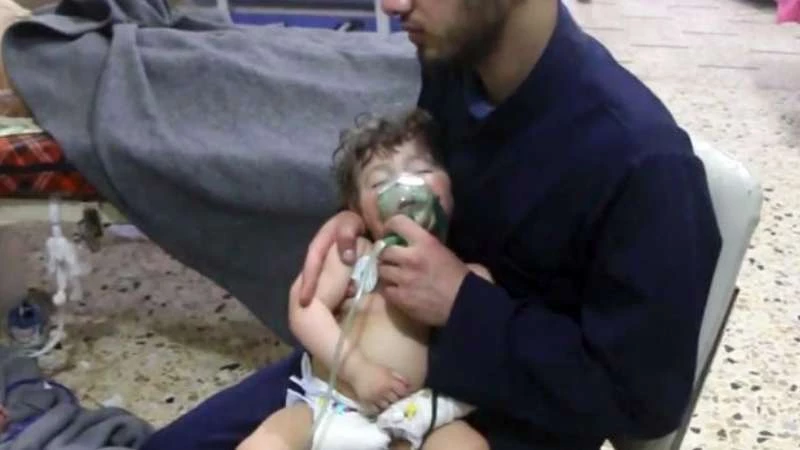The latest report from the Organization for the Prohibition of Chemical Weapons said the Assad regime has remained engaged with the OPCW, but the information it has provided has not resolved the issues.
Deputy disarmament chief Thomas Markram briefed the UN Security Council behind closed doors Thursday (August 2) on the report.
The confirmed use of chemical weapons in the Damascus suburb of Ghouta in August 2013, which killed 1,400 people, according to the US government, led to a US-Russian agreement to eliminate Syria’s chemical weapons by mid-2014.
The agreement required Syria to join the OPCW and declare all its chemical weapons and precursors, and there is growing frustration at Damascus’ failure to satisfactorily answer all outstanding questions from the OPCW about its declaration.
UN Secretary-General Antonio Guterres reiterated in a letter transmitting the report to the Security Council that all open issues in the declaration must be resolved, and he strongly encouraged the Assad regime to do so.
The OPCW said it was analyzing responses from Syria sent on July 10 to questions about chemical weapons-related activities at the Scientific Studies and Research Center.
Syria has been accused repeatedly of using chemical weapons in the seven-year war, including in April in the town of Douma.
Bashar Assad said in an interview in June with Russia’s state-controlled NTV television channel that his regime got rid of all its chemical weapons in 2013 and that allegations of their use are a pretext for invasion by other countries.
Departing OPCW Director-General Ahmet Uzumcu confirmed in the report, covering the period from June 23 to July 23, that its inspectors had verified the destruction of the last two of 27 chemical weapons production facilities declared by Syria.
He said the two facilities were destroyed in June, and on July 12 the OPCW “conducted inspections at both sites and verified that all declared buildings had been razed to ground level and all debris removed.”
The Security Council established a joint UN-OPCW investigative team in August 2015 to determine responsibility for chemical attacks in Syria.
The Joint Investigative Mechanism accused Syria of using chlorine gas in at least two attacks in 2014 and 2015 and the nerve agent sarin in an aerial attack on Khan Sheikhoun in April 2017 that killed about 100 people and affected about 200 others. The Khan Sheikhoun attack led to a US airstrike on an airfield.
Britain’s UN Ambassador Karen Pierce, the current council president and a strong supporter of accountability for chemical attacks, told reporters Thursday that “those responsible cannot escape identification” and the United Kingdom is “committed to securing justice for victims.”
“It is in our collective shared interest that we prevent the use of chemical weapons in Syria and to uphold and defend the global consensus that these weapons should never be used,” she said. “We will respond appropriately to any further use of chemical weapons in Syria.”



التعليقات (0)